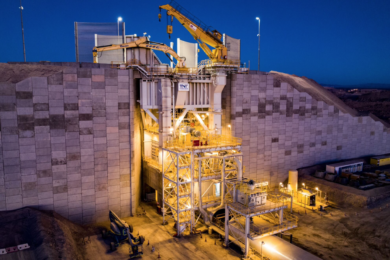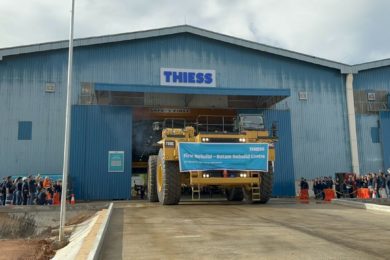The Athabasca communities (Canada), Cameco Corp and AREVA Resources Canada have signed a collaboration agreement that builds upon an enduring partnership in the development of uranium resources in the Athabasca Basin.
The Ya’Thi Néné (“Lands of the North” in Dene) collaboration agreement confirms the continued support of the communities historically and traditionally associated with the Cigar Lake, McClean Lake and Rabbit Lake uranium mining operations.
The comprehensive and unique agreement builds on the existing relationships and commercial arrangements between Cameco, AREVA and the three First Nation communities of Black Lake, Fond du Lac and Hatchet Lake, and the four communities of Stony Rapids, Wollaston Lake, Uranium City and Camsell Portage.
Diane McDonald, lead negotiator for the Athabasca communities: “The renewed partnership agreement gives the Athabasca communities certainty, to help ensure that the companies operate sustainably, bringing positive changes for the future generation.”
Tim Gitzel, President and CEO of Cameco: “By working with industry, people living in the north have found ways to enhance the capacity and vitality of their communities while protecting their traditional values and lands. This agreement assures that strong partnership will continue.”
Vincent Martin, president and CEO of AREVA Resources Canada: “This agreement further solidifies our longstanding collaboration with these communities. It speaks to our joint vision and commitment to the prosperity of northern Saskatchewan for decades to come.”
The Ya’Thi Néné collaboration agreement builds on the existing impact management agreement signed in 1999. The new agreement is structured on five pillars of workforce development, business development, community engagement, environmental stewardship, and community investment. Terms of the agreement include commitments to:
Workforce Development
- Continue the hiring preference for residents of the Athabasca communities for the Cigar Lake, McClean Lake and Rabbit Lake operations and the establishment of employment targets in consultation with communities
- Continue providing career awareness programs and scholarship funding for community residents
Business Development
- Continue preference for community-owned businesses in meeting the service requirements for Cameco and AREVA operations and develop new opportunities in specific areas
- Create a business advisory committee to ensure strategic discussions take place and business targets are achieved
Community Engagement and Environmental Stewardship
- Establish new structures, in consultation with communities, to engage and inform the Athabasca residents on environmental and operational matters related to the Cameco and AREVA’s operations
- Sustain and enhance the community-based environmental monitoring program currently overseen by the Athabasca Working Group
- Provide annual funding to support the Ya’Thi Néné Land and Resource Office which will serve as a point of contact for the companies on environment-related matters
Community Investment
- Cameco and AREVA will provide annual production-based payments to a community-administered trust to be used for initiatives that promote the health and well-being of residents, address housing needs, preserve language, culture and traditional practices, improving community infrastructure and generate education and economic opportunities for residents.
The agreement will remain in force until the existing Athabasca Basin operations of Cameco and AREVA are decommissioned.
Cameco is one of the world’s largest uranium producers, a significant supplier of conversion services and one of two Candu fuel manufacturers in Canada. Its competitive position is based on a controlling ownership of the world’s largest high-grade reserves and low-cost operations.
AREVA in North America says it “combines Canadian and US leadership to supply high added-value products and services to support the operation of the nuclear fleet. Globally, AREVA is present throughout the entire nuclear cycle, from uranium mining to used-fuel recycling, including nuclear reactor design and operating services.”










